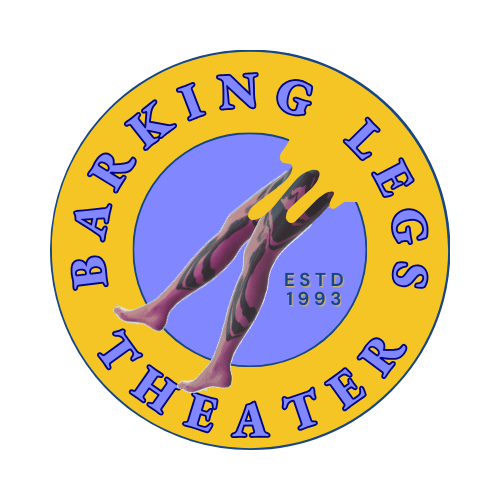Fred Lonberg-Holm and the Lightbox Orchestra in The Pulse
Thanks to Ernie Paik and The Pulse for this splendid journalistic effort on Fred Lonberg-Holm and the Lightbox Orchestra. This Monday, the LBO will make its first appearance in Tennessee ever... at Barking Legs! Fred's cello virtuosity will also be on display in a solo set.
January 27, 2016 Avant-garde composer and master cellist keeps jazz fresh and exciting In the fertile creative music grounds of Chicago, the versatile, overachieving cellist and composer Fred Lonberg-Holm thrives with the ability to stay limber, traversing jazz, classical, rock, pop and the avant-garde.He is the bandleader of the jazz outfit Valentine Trio and a member of numerous ensembles including Vox Arcana and Ballister, and he has collaborated with free-jazz heavyweights like Joe McPhee, Peter Brötzmann and Ken Vandermark.He’s played on albums such as Yankee Hotel Foxtrot by Wilco and a familiar face in releases on the labels Thrill Jockey and Drag City, and he’s recorded with artists as diverse as country band Freakwater, rock group Superchunk and the unclassifiable musician Jim O’Rourke.At the age of ten, Lonberg-Holm started taking weekly 50-cent cello lessons in inner-city Delaware, further honing his skills later in New York City at the pre-college division of Juilliard followed by the Manhattan School. He was a mentee of the legendary composer Morton Feldman in the ‘80s and studied under Anthony Braxton at Mills College in California before a return to NYC and a move to Chicago in 1995.After building momentum in NYC in the ‘80s, a key moment of his career was an appearance on the 1988 album Exquisite Corpses from the Bunker, a musical version of the surrealist writing game “Exquisite Corpse,” alongside notable improvisers including Ikue Mori, Jack Wright, Judy Dunaway and Chris Cochrane; this attention led to the release of his first CD in 1990, Theory of Motion with percussionist William Winant the aforementioned Braxton.Lonberg-Holm answered some questions for The Pulse via email, in advance of his return to Barking Legs Theater on Feb. 8 for a solo cello set and a performance of his Lightbox Orchestra, comprised of local and regional improvisers.As an improviser, Lonberg-Holm had participated in many performances of “game pieces,” including the most famous one which is John Zorn’s Cobra, and he developed his idea for the Lightbox Orchestra to allow himself, as its conductor, to guide the improvisational proceedings in a stronger manner.Here’s how it works: Lonberg-Holm uses a contraption with various colored lights and hand-written cards with a picture or word on each. He will hold up a card and turn on one or more lights, each of which signals a different musician, who plays only when the corresponding light is on, sonically interpreting what is on the card.“What makes a Lightbox [performance] worthwhile is when we, as a group, find a way to listen and make some sort of sense out of what happens between us,” said Lonberg-Holm. “For me, things seem to work best when I remain open to what is actually happening and help shape it rather than try to force it into something it isn’t.”When asked about a quote in a video for Gearwire, when he said, “If there’s any discipline, it’s the discipline of not being too disciplined,” Lonberg-Holm clarified that this isn’t about stopping practicing or any particular activity.“It’s not that you ‘should’ or ‘shouldn’t’ do something, but you should be mindful of what it is you are doing and what it does to you,” said Lonberg-Holm. “For me, it’s important to remain open and flexible. This, in and of itself, requires a particular kind of discipline. Sort of like floating on one’s back in a pool. Not ‘doing’ anything, just letting the water and your body do the work. It can be hard; for some, almost impossible.”“I think technique/craft is important if for no other reason than it gives one something to reject,” said Lonberg-Holm. “I urge people who want to play the freaky funky freedom music to go to an old-school classical teacher, learn what you can and then unlearn as much of it as possible. It’s a long process, but I don’t know any easy bypass.”“I feel comfortable with the loose structures I inhabit but still recognize them as structures none the less,” said Lonberg-Holm. “I pretty much rejected the approach where a ‘structure’ is devised and then the sounds are hung on it like decorations. I don’t know if it’s done much anymore but it used to be a thing.”When asked about inspirations for his improvisations, he had a simple answer: “Sounds.”“Seriously. When I start to play, the only thing that matters are the sounds and their relationships to each other,” said Lonberg-Holm. “As an improviser I try to follow them and find where they lead. Only on very bad days do I start with an idea or an inspiration or desire.”Fred Lonberg-Holm: As Classical as Jazz

January 27, 2016
